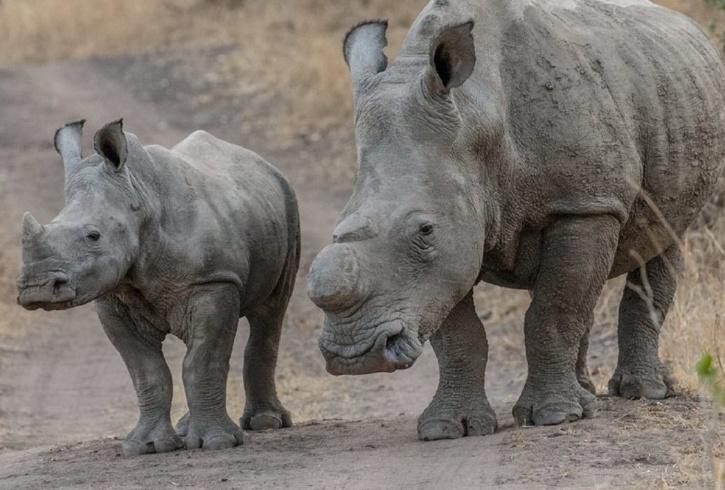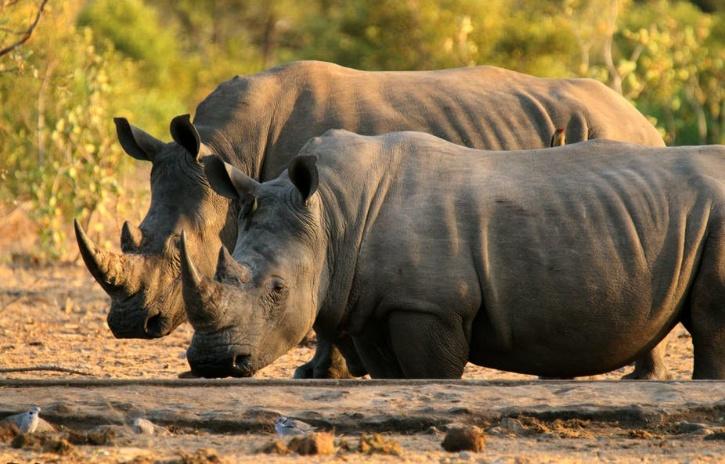The COVID-19 pandemic spelled disaster for endangered species in
Africa and
Asia as
poachers took advantage of the global lockdown in conducting their illegal activities. However, in
South Africa, the lockdown had a different impact on its rhino population. According to Minister of Environment, Forestry, and Fisheries
Barbara Creecy, only five rhinos were poached in
Kruger National Park four months ago compared to 46 in April 2019. South Africa has, for years, battled a plague of rhino poaching incited by the ravenous demand for their horns from
China and
Vietnam. CGTN Africa reported that it was the first time in almost a decade that Kruger National Park did not see a single rhino killing in the Intensive Protection Zone in April. Jo Shaw, senior manager and African rhino lead for the World Wildlife Fund, indicated that South Africa's rhino-poaching epidemic reached its peak in 2014 with about three rhinos killed per day. Last year, 594 rhinos were killed. While the post-COVID drop possibly has several explanations, Shaw agreed that the lockdown contributed to it. However, Minister Creecy warned that the poaching trend will come back again with lockdown restrictions relaxing and
game parks being reopened.
 |
Mother rhino and calf
|
Although I'm delighted to hear that South Africa's rhino population has been protected from poaching during the lockdown, I wonder what could be the secret behind such big news. Could it be because the governments of China and Vietnam banned the demand for rhino horns following the pandemic? Did South Africa intensify its anti-poaching efforts in Kruger National Park and other protected areas across the country during the lockdown? I think there could be a number of reasons, but the biggest question is if South Africa's rhinos are saved by the COVID-19 lockdown, how come endangered species in
India are still suffering from poaching? A recent
report published in June indicated that poaching for consumption and local trade more than doubled during the lockdown. However, it also showed that there was no proof of building up of wildlife products for forthcoming trade. A species group comparison showed that the percentage of
ungulates reportedly poached increased from 22% during the pre-lockdown period to 44% during the post-lockdown period. I strongly urge the government of India to focus on mitigating the country's poaching epidemic during the lockdown. Anti-poaching efforts need to be intensified across the country, which should include a joint collaboration between the state forest departments, law enforcement officials, the
Central Bureau of Investigation (CBI), and various conservation NGOs. These efforts should, by all means, be provided with strong political support. South Africa, on the other hand, should keep a strong vigilant watch for any suspicious activities related to poaching in its
protected areas and act upon it especially with the easing of the lockdown in the country. When a global lockdown like this one for COVID-19 is put into effect, it does not mean that the world's wildlife will benefit with the absence of human presence in wild places everywhere. There are always desperate groups of people affected by poverty and food shortages as a result of the pandemic, who would take advantage of the lockdown to carry out illegal poaching to make ends meet. This is why I strongly urge for intensification of anti-poaching efforts in India and other places badly affected by poaching and the illegal wildlife trade during this pandemic. Furthermore, such communities whose members are forced to go into a life of wildlife crime should be provided with help to ensure that they survive without resorting to poaching.


No comments:
Post a Comment